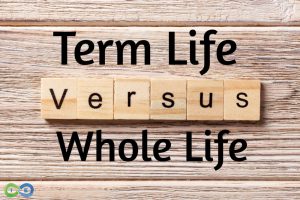Choosing the right life insurance plan is an essential step in securing your financial future and protecting your loved ones. With so many options available in the market, it can be overwhelming to know where to start. Understanding the various types of life insurance and evaluating your personal circumstances are key to finding the best plan for your needs. In this article, we will guide you through the process of selecting the right life insurance policy.
Understand Your Life Insurance Needs
The first step in choosing the best life insurance plan is to assess your needs. Life insurance is meant to provide financial protection for your dependents in case of your death, but the amount of coverage you need depends on several factors. Take the time to consider your financial responsibilities, the number of people who depend on you, and any existing assets that could be used to cover your debts or living expenses.
Begin by evaluating your current financial situation. If you have a spouse, children, or other dependents, it’s crucial to provide for their well-being in your absence. Consider outstanding debts such as a mortgage, car loans, and credit card balances. Also, account for ongoing living expenses, future education costs for your children, and funeral expenses. Once you have a clear understanding of your financial obligations, you can determine the amount of coverage necessary.
Know the Types of Life Insurance
There are several types of life insurance policies, each offering different features and benefits. Understanding the differences between these options will help you decide which one is right for you.
- Term Life Insurance
Term life insurance provides coverage for a specific period, typically between 10 to 30 years. It is the most affordable option, making it a popular choice for individuals with temporary financial responsibilities, such as paying off a mortgage or raising children. With term life insurance, your beneficiaries will receive the death benefit if you pass away within the term of the policy. However, once the term ends, the policy expires, and you will no longer have coverage unless you choose to renew or convert it.
Term life insurance is ideal for those seeking an inexpensive way to provide financial protection during a specific period, but it doesn’t offer any cash value or investment component.
- Whole Life Insurance
Whole life insurance is a form of permanent life insurance that provides lifelong coverage as long as premiums are paid. Unlike term life, it does not expire after a set period. Whole life insurance also has a cash value component, which grows over time and can be borrowed against or withdrawn if needed. This makes whole life insurance more expensive than term life insurance but offers greater financial flexibility and security.
Whole life insurance is a good choice if you’re looking for permanent coverage and want to accumulate cash value over time. It can also be useful for estate planning or leaving a legacy for your heirs.
- Universal Life Insurance
Universal life insurance is another form of permanent life insurance, but it offers more flexibility than whole life insurance. With universal life, you can adjust your premiums and death benefits within certain limits. The policy also builds cash value, but the growth rate is typically tied to interest rates and can fluctuate. Universal life insurance offers a balance of protection and investment opportunities, making it a good option for those who want flexible coverage with the potential for growth.
Universal life insurance is ideal for those who want more control over their premiums and coverage, as well as the opportunity for investment growth.
- Variable Life Insurance
Variable life insurance is a type of permanent life insurance that offers the potential for higher returns by allowing you to invest the cash value in a range of securities, such as stocks and bonds. While this can lead to greater growth potential, it also comes with a higher degree of risk. The cash value can fluctuate depending on the performance of the underlying investments, and the death benefit can vary as well.
Variable life insurance is suitable for those who are comfortable with investment risk and want to potentially grow their policy’s cash value over time.
- Final Expense Insurance
Final expense insurance, also known as burial insurance, is a smaller policy designed to cover funeral and burial costs. It is typically easier to qualify for and may be a good option for individuals who don’t need large life insurance coverage but want to ensure that their end-of-life expenses are taken care of. The death benefit is usually modest, but it can provide peace of mind knowing that your loved ones won’t be burdened with funeral expenses.
Compare Life Insurance Providers
Once you have determined the type of life insurance that best suits your needs, the next step is to compare different life insurance providers. Different companies offer different rates and terms, so it’s essential to shop around to find the best deal.
Start by obtaining quotes from multiple insurers to get a sense of the premiums you can expect for the coverage you want. While it may be tempting to go for the lowest premium, be sure to also consider the insurer’s reputation, financial stability, and customer service. A policy may appear affordable upfront, but if the insurer has a poor track record of paying claims or providing customer support, it may not be the best choice.
You can compare providers using online tools or work with a licensed insurance agent who can help you navigate the options available. Keep in mind that premiums are influenced by various factors, such as your age, health, and lifestyle, so be prepared for the rates to vary.
Evaluate Your Budget
Life insurance premiums can vary widely depending on the type of policy, the amount of coverage, and the insurance provider. It’s essential to choose a policy that fits within your budget while still providing the necessary coverage. Remember that life insurance is an investment in your family’s future, and the right plan can offer financial security.
If budget is a concern, consider starting with a term life policy, which tends to be more affordable than permanent life insurance options. You can always adjust your coverage as your financial situation changes. If your budget allows, you might also consider a whole life or universal life policy, which provides permanent coverage and additional benefits such as cash value accumulation.
Understand Policy Exclusions and Riders
Before finalizing your decision, take the time to read through the policy details and understand any exclusions or limitations. Some life insurance policies may have exclusions for certain types of deaths, such as suicide within the first two years of the policy or death resulting from high-risk activities.
Additionally, many life insurance providers offer riders, which are add-ons to your policy that provide extra coverage or benefits. Common riders include accidental death benefits, disability income riders, and critical illness riders. These riders can offer additional protection but may come with an extra cost, so it’s important to weigh their value against the premium.
Review and Update Your Life Insurance Regularly
Your life insurance needs may change over time, so it’s important to review and update your policy periodically. Major life events such as marriage, the birth of a child, a new home, or a change in employment may affect your coverage needs. Review your life insurance regularly to ensure that it still aligns with your current financial situation and goals.
Conclusion
Choosing the best life insurance plan for your needs requires careful consideration of your financial responsibilities, personal goals, and family situation. By understanding the different types of life insurance, comparing providers, evaluating your budget, and considering any additional riders, you can make an informed decision that offers the right level of protection for your loved ones. Life insurance is an essential tool in financial planning, and selecting the right policy ensures that your family will be financially secure if anything were to happen to you. Take the time to assess your needs and choose a policy that fits your unique circumstances.



